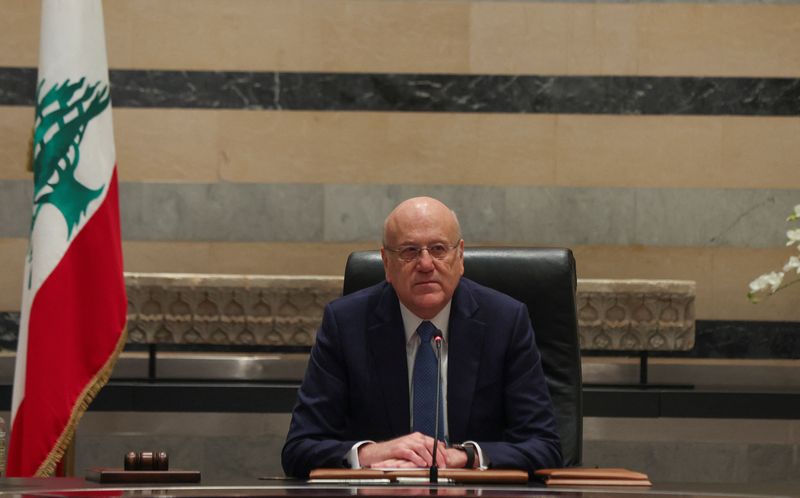BEIRUT (Reuters) -Lebanon’s caretaker premier said the cabinet had voted to move clocks one hour ahead on Wednesday night, reversing his decision to postpone the move to daylight savings time by a month that had sparked uproar across the country.
Prime Minister Najib Mikati said on Monday the decision had been taken after a “calm discussion” and that the state needed 48 hours to re-adjust their operations.
Mikati angered many Lebanese when he decided last Thursday not to start daylight savings time over the last weekend of March but instead to roll clocks forward an hour on April 20.
That decision came after a meeting with Parliament Speaker Nabih Berri in which Berri asked him to postpone the time switch, according to footage of the meeting seen by Reuters.
It was seen as an attempt to score points among Muslims who are fasting until sunset during the holy month of Ramadan. Moving clocks forward means Muslims would have to fast an additional hour as sunset would be at a later time on the clock.
But the move was defied by Lebanon’s top Christian authority as well as some schools, media outlets and businesses, which rolled their clocks forward on Saturday night.
Mikati even faced objections from within cabinet, including the justice minister who said Lebanon had more important challenges to focus on.
The country has been without a president for five months and a protracted financial crisis has brought most public institutions to a standstill.
Mikati referred to the crises in his comments on Monday.
“Let us be clear. The problem is not winter or summer time… Rather, the problem is the vacuum in the top post in the republic,” he said.
(Reporting by Laila Bassam and Maya Gebeily; editing by Jon Boyle and Mark Heinrich)


